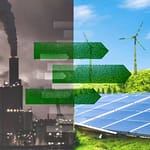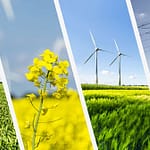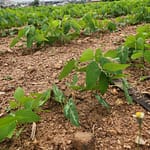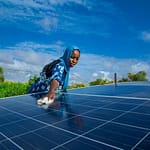Nigeria is one of the most populous countries in Africa with over 200 million people. The country is blessed with vast resources and faces numerous challenges in achieving a sustainable development and combating climate change. However, these challenges present ample opportunities, particularly in its carbon markets. The good side of the current global challenge is that it poses as an opportunity for Nigeria to develop itself using more sustainable and innovative alternatives. Taking the energy sector as an example, the influx of renewable energy investments is evident in the sustainable growth which will accelerate Nigeria’s goal to race to zero.
Nigeria’s carbon market is an emerging market that is yet to actualize to its full potential. The need to unlock its opportunities is pivotal to promoting sustainable growth, stimulate economic development and mitigate climate change. Nigeria’s carbon market serves as an attraction for climate finance and to curb greenhouse gas emissions.
Read also: Nigeria Grapples with Currency Volatility as US Deputy Secretary calls for Economic Reforms
There are several ways in which the carbon market can serve its purpose in accelerating sustainable growth and one of them is through carbon credits. Carbon offsets or carbon credits is a reduction or removal of emissions of carbon dioxide or other greenhouse gases made to compensate for emissions made elsewhere. The purpose of this act is to fund specific projects that either lowers carbon emissions or taking those emissions out of the atmosphere and storing them. Carbon offsetting projects can take various forms like Reforestation, Renewable energy, Waste to energy, Improved cook stove and so on.
Carbon offsetting project in Nigeria is an example of the Waste Heat Recovery Project carried out by Dangote Industries Limited Cement. The cement company implemented a waste heat recovery project at its cement production facility. The project entailed capturing and utilizing waste heat from the cement kilns to generate electricity. By utilizing this renewable energy source, Dangote cement reduced its reliance on fossil fuels which significantly reduced their carbon emission.
Another example is the Access Bank Plc Reforestation Project called Save Wildlife. The bank partnered with local communities to establish tree nurseries and planted over 100,000 trees in deforested areas. This initiative helped sequester carbon dioxide and contributed to biodiversity restoration as well as improved the livelihood of the locals in that area.
There have been active steps taking to unlock Nigeria’s carbon market and Africa as a whole. The Africa carbon markets initiative launched at COP 27 came because of the global demand for carbon credits and the potential for Africa to supply these credits. The initiative was launched by Global Energy alliance for people and planet, sustainable energy for all, The Rockefeller Foundation and UN Economic Commission for Africa, with support from the UN Climate Change High-Level Champions.
Nigeria has the potential to produce more than 30 million tons worth of carbon credits annually by 2030 and to generate more than $500 million per year yet the country still faces numerous obstacles. The major problems are the lack of clear policy and framework, Limited awareness and capacity, Inadequate measurement, Reporting and verification system, Limited access to financing and political instability.
Despite all these challenges the Nigerian government is making slow but steady progress. The recent request for carbon tax policy and a national carbon strategy is an example of steps taken in the right direction. The government is also in the works of replicating a carbon pricing scheme similar to ETS and also a strategy for voluntary carbon markets.
Unlocking Nigeria’s Carbon market opportunities holds potential for sustainable growth, economic development, and climate change mitigation. Collaborating with international partners, capacity building and targeted investments can help actualize these potentials.
Subscribe to LIDA Network












